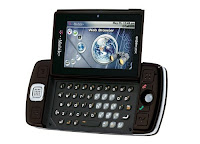The city is planning an intensive campaign that would use cell phones to help motivate students, most of them minorities and from poor families, in two dozen schools. The pilot program will include mentoring and incentives for high performance, like free concerts and sporting events and free minutes and ring tones for their phones. Every student in each of the schools will be given a cell phone. It will use text messages, drawn up by an advertising agency and sent over the phones, that promote achievement.
The plan, designed by Roland G. Fryer, a Harvard University economist who is overseeing the school system’s program of paying students who do well on tests, was approved by Mayor Michael Bloomberg. Details about how much will be spent and where the money will come from are still to be worked out, Education Department officials said. Although it is not clear which of the plans education officials will choose, they are enthusiastic about one that tries to make poor teenagers aware that academic success can lead to jobs that pay enough to support a middle- or upper-middle-class way of life.
The focus group research showed that cell phones were the primary means of communication for many teenagers, and that reaching them through a concerted campaign of text messages or through the Internet was far more likely to be effective than a traditional billboard and television campaign. Some City Hall officials were initially skeptical of the program because it had the potential to create more uproar about the mayor’s strict policy of banning cell phones in schools. But Mr. Bloomberg, according to several city officials, decided that the project was worth the risk The program will begin in January and involve 10,000 to 15,000 students at four city charter schools run by the Knowledge Is Power Program and 20 schools run by New Visions for Public Schools, a nonprofit group.
If the program is successful in improving student attendance and grades, it would most likely be expanded, Mr. Klein said. “If it doesn’t work, we won’t continue it,” he said. “Let’s be candid in some places, if you’re doing well, you’re like a dork. We’re saying, ‘No, no, it’s not dorky.’”
I think that this is a pretty good idea. This will really get the attention of students. Although people are going to think mayor Bloomberg is an idiot because he was just banning cell phones and now he is encouraging them. I wish that they thought of these programs when I was in school.
The plan, designed by Roland G. Fryer, a Harvard University economist who is overseeing the school system’s program of paying students who do well on tests, was approved by Mayor Michael Bloomberg. Details about how much will be spent and where the money will come from are still to be worked out, Education Department officials said. Although it is not clear which of the plans education officials will choose, they are enthusiastic about one that tries to make poor teenagers aware that academic success can lead to jobs that pay enough to support a middle- or upper-middle-class way of life.
The focus group research showed that cell phones were the primary means of communication for many teenagers, and that reaching them through a concerted campaign of text messages or through the Internet was far more likely to be effective than a traditional billboard and television campaign. Some City Hall officials were initially skeptical of the program because it had the potential to create more uproar about the mayor’s strict policy of banning cell phones in schools. But Mr. Bloomberg, according to several city officials, decided that the project was worth the risk The program will begin in January and involve 10,000 to 15,000 students at four city charter schools run by the Knowledge Is Power Program and 20 schools run by New Visions for Public Schools, a nonprofit group.
If the program is successful in improving student attendance and grades, it would most likely be expanded, Mr. Klein said. “If it doesn’t work, we won’t continue it,” he said. “Let’s be candid in some places, if you’re doing well, you’re like a dork. We’re saying, ‘No, no, it’s not dorky.’”
I think that this is a pretty good idea. This will really get the attention of students. Although people are going to think mayor Bloomberg is an idiot because he was just banning cell phones and now he is encouraging them. I wish that they thought of these programs when I was in school.



0 comments:
Post a Comment